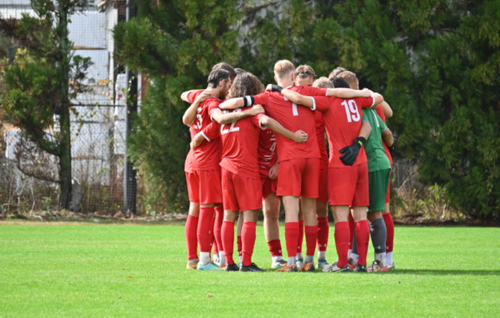By Sydney Preston
For student athlete Colin Dwyer, a typical day is waking up, going to school from 9-3, having a grueling practice after classes, a mandatory weight training and then getting back to his house exhausted at 8 p.m. to do homework.
But Dwyer said the draining off-season schedule is actually the easiest portion of a student athlete’s yearly schedule.
“Every day I push past the limit,” said Dwyer, a 20-year-old soccer player at Flagler College. “You don’t get better unless you do.”
Consistently full days, weeks on end, has a direct impact on a person’s mental well-being.
According to the American College of Sports Medicine (ACSM), only 30% of female-identifying student athletes and 25% percent of male-identifying student athletes report having mental health problems. And among the athletes who know about their mental health issues, only 10% of them seek out help from a mental health professional.
Dwyer is a part of the 10% of students who has reached out and gotten the help he needs for his mental health. He said he feels like student athletes are often put on a pedestal where they are expected to balance with no problems.
The stigma surrounding mental health has drastically decreased over the last few years. One of the major contributing elements to this is the increasing number of professional athletes opening up about their struggles.
Most recently Lane Johnson, an offensive tackle on the Philadelphia Eagles, opened up about the intense anxiety he has experienced before games. After breaking an NFL record, Johnson appeared in Super Bowl LVII.
Newer generations are growing up with all-star champions who are speaking out about their mental struggles.
Struggling with mental health is not something that is new, but impacts on a student athlete’s mind and body is a more recent concern.
Carson Harvill is a sophomore at Flagler College where she played Lacrosse before quitting her sport due to mental health reasons after her freshman season.
“It became too much. It wasn’t fun anymore. I had anxiety every day, I couldn’t focus on anything. It was so overwhelming and it wasn’t worth it,” said Harvill.
Despite her love for the sport and her teammates, she said she felt the stress put onto the athletes was too much. “I don’t feel like I was supported at all,” Harvill said about her coaches.
Mary Tinlin, senior director for Health and Wellness/CARE Coordinator at Flagler College and Dr. Andrea Adams-Manning, director of CASE Management and Outreach and Education at Flagler College, teamed up with the Flagler College Athletic Department to provide extra support to student athletes.
“Last spring, we identified student athletes as a special population we wanted to focus on in Health and Wellness,” said Tinlin. “With several high-profile athletes, particularly early last spring, committing suicide, I think it really started to bring the attention to the sometimes-overwhelming stress that student athletes face.”
Tinlin expressed how open the entirety of the Athletic Department was to having this conversation.
After Dr. Adams-Manning and Tinlin presented to the athletic teams, coaches have taken their teachings and applied them to better support their athletes.
The men’s soccer team has implemented a wellness sheet for their athletes to fill out every morning. The sheet asks how an athlete is doing both physically and mentally. Dwyer said that if someone on the team writes that they are unhappy, the coaches will come speak with them and adjust the practice accordingly.
Dr. Adams-Manning spoke on how coaches want to help their athlete’s mental health now more than ever saying “the brain is a muscle that needs to be worked on too.”
The Center of Disease Control and Prevention (CDC) states that 1 in 5 Americans will experience a mental health issue in a given year and that 1 in 25 Americans live with serious mental illnesses.
A student athlete’s personal life often becomes nearly non-existent, Dwyer said. He notes that in his free time, he only eats food and does homework. “This is what I want so I can’t really complain about not having a personal life,” he said.
Being a student athlete and maintaining good mental health is possible if the athlete is playing the sport for the right reasons, said Dr. Adams-Manning.
If you or someone you know is struggling with your mental health there are professional mental health counselors on campus.



Be the first to comment on "Athletes struggle with pressures and mental health"